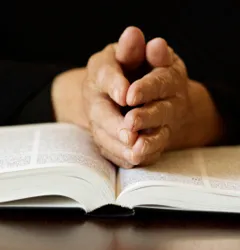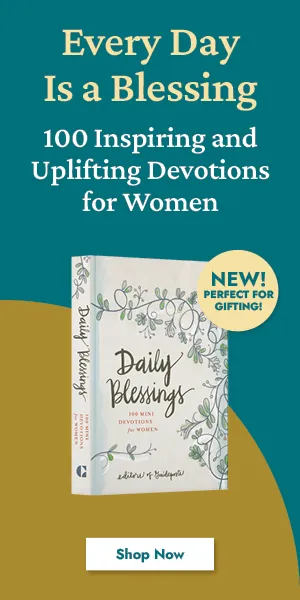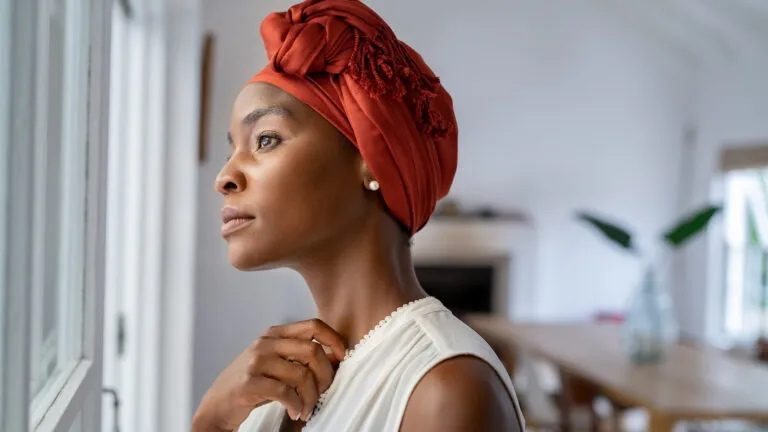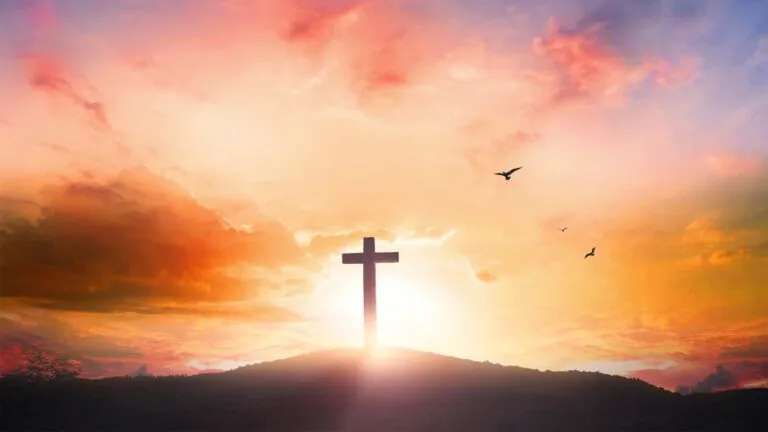There are moments in life when we feel there is nowhere to turn.
It seems God has forsaken us, that all hope for happiness and peace of mind is lost. We have offered impassioned prayers. We have begged, pleaded, cajoled.
We ask, and get rebuffed. Without explanation or comfort. We have identified the door we wish our Creator to open for us, and it is slammed in our face with a seemingly heartless indifference.
Consider for a moment the possibility that what we are being given, when our prayers aren’t answered the way we want them to be, is the opportunity to develop a deeper relationship with God, a deeper sense of inner peace. Perhaps our insistence that God give us everything we want when we want it and run the universe the way we think it should be run is actually standing in the way of our ability to know God. Our desire for things to be different than they are is what keeps us out of sync with the world we are living in and keeps us disconnected from the experience of love and contentment that is available to us in this moment.
Since the mid-1970s, one of the primary outward forms of spiritual practice in my life has been working with people who have experienced some profound life change that has left them heartbroken and devastated. Through all of these experiences I have come to recognize that the prayers of many good, kind, decent, loving people aren’t necessarily answered the way they want them to be.
Unanswered prayer is seldom discussed. To even address the issue is sometimes felt to be an expression of negativity that might actually undercut the power of prayer. In many circles, the thinking is, “Don’t consider that your prayer might not work. Don’t discuss the times it doesn’t. Just keep praying and affirming.”
But that doesn’t offer solace to the millions and millions of us who have prayed for something that we didn’t get or that didn’t happen. And as a result of that unanswered prayer, many of us have had life-changing experiences that, for some, have undermined belief in God, in the benevolent nature of the universe, and in the power of prayer.
In many cases, when that happens, we don’t return to church or to our spiritual community. We may become disappointed, cynical, and angry. We doubt our faith. We wonder if God is really in control or if God really cares.
Every one of us will have to deal with changes we don’t like. The way we react to unwanted, unexpected loss in our lives, and to anything in our universe that we don’t like, is the foundation of our grief. In essence, it is the resistance to change—so firmly entrenched in our minds—that creates our grief.
Or we can look for the deeper truth in our life and in the universe. We can look for that which is eternal and unchanging. We can ask how this unwanted change in our lives might somehow make it easier to find God, to find the Divine, to connect with our Creator. Even if it doesn’t seem to make that process easier at the moment, what it can do is give us the fuel and motivation for our spiritual journey.
Many of us find a great deal of solace, comfort, and support in our religious communities when we face serious life challenges. But, unfortunately, far too many of us don’t.
Spiritual paths that are truly effective, and truly useful to their adherents, offer practices and perspectives that encompass all of life’s potential experiences. Truly helpful spiritual teachings also acknowledge that we live in a physical universe where change is inevitable, often unpredictable, and not always something we are happy about.
In the more than thirty years that I have worked with people going through extremely difficult life transitions and losses, I have too often heard that when people looked to their spiritual community or their religious teachings for help, it wasn’t there.
One wonderful woman named Chris shared some interesting insights. Her beloved twelve-year-old son, Teddy, died after a long, painful struggle with Hodgkin’s disease. She was deeply wounded and angry at God.
Just before I met her, she had begun to feel some glimmers of lightness and joy returning to her life. I asked, “What has been helpful to you in finding joy again?”
Chris thought for a moment. Then she spoke. “The greatest help came from my two dear friends, Mary and Shirley. They are neighbors of mine. I’ve known them for years. Our children grew up together. For months after Teddy died, Mary and Shirley would come over to my house every afternoon and cry with me. That was helpful.”
Again and again I have heard people say that when life becomes overwhelmingly difficult and frightening, when events happen that undermine our faith, our trust, and our happiness, when our hearts are broken and there seems to be no way to understand, explain, or comprehend what we are going through, the things that are truly helpful and truly healing are love and community — the feeling that we are not alone…that we have friends whose hearts are big enough to hold our pain without judgment or aversion.
When we have problems, when our hopes are frustrated, when our hearts are “broken,” many of us tend to close our hearts. When we feel disconnected from love, the world we live in inevitably looks threatening and dangerous. As long as our hearts stay closed, we have no real opportunity for healing.
The simple formula is: The more we love, the closer we are to God.
Download your FREE ebook, A Prayer for Every Need, by Dr. Norman Vincent Peale





